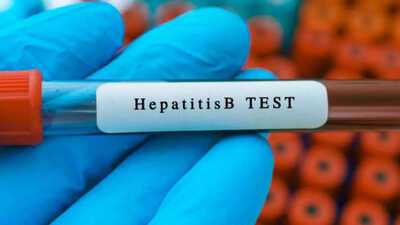Tattoos and piercings have become a global trend these days. With people becoming more and more aware and accepting of their body and self, tattoos and piercings have become forms of self-expression and adornment, with people of all ages, professions and backgrounds using them to feel more beautiful and free.
However, both these processes involve changes in the body, leading to a risk to health. Various experts and individuals have concerns about the health risks associated with tattoos and piercings, and how to tackle them. These include serious questions about the possible infection of hepatitis from both processes. Know more about this below!
Do tattoos and piercings cause hepatitis?
Hepatitis is a condition where the liver becomes inflamed due to various factors, such as infections.
In the process of tattooing, small needles pierce the skin numerous times to implant the dye permanently into the dermis. This can increase the risk of hepatitis (A to E). Among these, hepatitis B and C are more dangerous. One can even contract deadly infections like HIV from this.
How? The major risk here is the needles, which, if reused, unsterilized, or shared in an ink depot with multiple users without gloves, can transmit infections from one to another.
"Hepatitis viruses are blood-borne and can be transmitted through dirty needles, tattoo ink or tattooing equipment," Dr Akhil Deshmukh, consultant, hepatology and liver transplant, Aster Whitefield Hospital, Bengaluru told HT lifestyle. “If the equipment is not sterilised, when a needle is reused after being removed from a sealed package, or if the ink pots are reused, or if the tattooing is done in a dirty place, like a roadside stand, the infection risks are boosted three to four times. Even a few droplets of infected blood can spread the disease," he warned.
In the case of piercings, the doctors say the risk of hepatitis is higher. In the procedure a larger needle is used to pierce through skin, tissues or cartilage, to create a small hole so that jewellery may be worn. Here, the exposure to blood is higher, and hence the risk of hepatitis transmission is higher. Hepatitis can also be transferred if the jewellery worn after the piercing has been used by others previously.
What does science say?
According to a study published in the National Library of Medicine, tattooing is known to have a documented risk of HCV infection.
Another study published in Journal of Infection and Public Health stated that hepatitis is the most well-documented infection transmitted by tattoos in the twentieth century. In most reported cases of transmission, the tattooist used the same needle for multiple customers without proper cross-infection control.
The most transmissible forms of the virus through tattooing are B and C, which are the most dangerous ones. Up to 5% of adults infected with the hepatitis B virus and up to 80% of those infected with the hepatitis C virus are chronic carriers. Up to 205 of them die due to liver disease, and the problem with hepatitis C is that people infected may not show any systemic manifestations of the disease for some time.
What precautions can one take?
The experts suggest getting tattoos at certified studios that ensure proper sterilisation and hygiene practices.
Those with liver issues and compromised immune systems must consult hepatologists before getting tattoos.
When getting tattoos, ensure that the station is cleaned and that the artist uses gloves during the entire process.
However, both these processes involve changes in the body, leading to a risk to health. Various experts and individuals have concerns about the health risks associated with tattoos and piercings, and how to tackle them. These include serious questions about the possible infection of hepatitis from both processes. Know more about this below!
Do tattoos and piercings cause hepatitis?
Hepatitis is a condition where the liver becomes inflamed due to various factors, such as infections.
In the process of tattooing, small needles pierce the skin numerous times to implant the dye permanently into the dermis. This can increase the risk of hepatitis (A to E). Among these, hepatitis B and C are more dangerous. One can even contract deadly infections like HIV from this.
How? The major risk here is the needles, which, if reused, unsterilized, or shared in an ink depot with multiple users without gloves, can transmit infections from one to another.
"Hepatitis viruses are blood-borne and can be transmitted through dirty needles, tattoo ink or tattooing equipment," Dr Akhil Deshmukh, consultant, hepatology and liver transplant, Aster Whitefield Hospital, Bengaluru told HT lifestyle. “If the equipment is not sterilised, when a needle is reused after being removed from a sealed package, or if the ink pots are reused, or if the tattooing is done in a dirty place, like a roadside stand, the infection risks are boosted three to four times. Even a few droplets of infected blood can spread the disease," he warned.
In the case of piercings, the doctors say the risk of hepatitis is higher. In the procedure a larger needle is used to pierce through skin, tissues or cartilage, to create a small hole so that jewellery may be worn. Here, the exposure to blood is higher, and hence the risk of hepatitis transmission is higher. Hepatitis can also be transferred if the jewellery worn after the piercing has been used by others previously.
What does science say?

According to a study published in the National Library of Medicine, tattooing is known to have a documented risk of HCV infection.
Another study published in Journal of Infection and Public Health stated that hepatitis is the most well-documented infection transmitted by tattoos in the twentieth century. In most reported cases of transmission, the tattooist used the same needle for multiple customers without proper cross-infection control.
The most transmissible forms of the virus through tattooing are B and C, which are the most dangerous ones. Up to 5% of adults infected with the hepatitis B virus and up to 80% of those infected with the hepatitis C virus are chronic carriers. Up to 205 of them die due to liver disease, and the problem with hepatitis C is that people infected may not show any systemic manifestations of the disease for some time.
What precautions can one take?
The experts suggest getting tattoos at certified studios that ensure proper sterilisation and hygiene practices.
Those with liver issues and compromised immune systems must consult hepatologists before getting tattoos.
When getting tattoos, ensure that the station is cleaned and that the artist uses gloves during the entire process.
You may also like

Urmila Matondkar: Even at the age of 51, Urmila Matondkar looks 25, see her top 5 looks..

Hariyali Teej Mehndi: Decorate your hands with Mehndi of your beloved's name, these are the most beautiful designs..

UPPSC: RO-ARO exam on 27th July, from OMR sheet to barcode... keep these things in mind; there may be problem..

Mhadei row: Goa CM asks Karnataka govt to follow cooperative federalism

Indian Railways Deactivates Over 2.5 Crore Indian Railway Catering & Tourism Corporation User IDs





